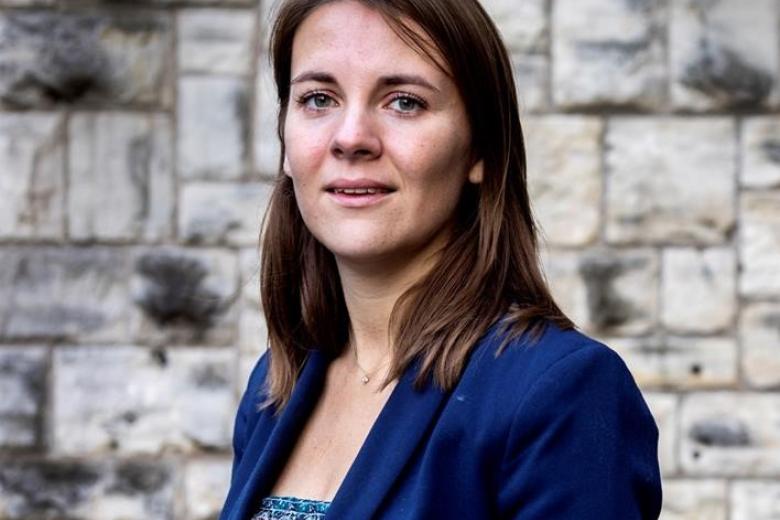The right to a Republic of Cyprus nationality for Turkish Cypriots
As you may or may not know, Cyprus is a divided island. While the south of the island is governed by the internationally recognized Republic of Cyprus, the north is governed by the "Turkish Republic of Northern Cyprus", an internationally unrecognized state.
The island has been divided in this way since 1974, ever since the Turkish army invaded the island to occupy/liberate (depending on which viewpoint you take) the Turkish Cypriots, the result of a struggle between the two main ethnicities living on the island: Greek Cypriots and Turkish Cypriots. At the time, a population exchange was organized so that almost all Turkish Cypriots moved to the north and almost all Greek Cypriots moved to the south. The Turkish policy was to invite people from the countryside in Turkey, mostly poor families, to move to north Cyprus and start a new life there.
Since 1974, there have been many failed attempts to create peace on the island, of which one of the most serious ones in 2004 when Kofi Annan together with the leaders of both sides wrote a plan for unification, which was then put to a vote in a referendum among the population. The Turkish Cypriots voted largely in favor, while the Greek Cypriots voted largely against. That same year, the Republic of Cyprus joined the EU while the north is still an unrecognized state, subject to international economic embargo.
In our research on the child's right to nationality in the Turkish Republic of Northern Cyprus, we found that while the Republic of Cyprus (RoC) nationality law allows for children of one parent who has RoC to pass this nationality on to their children, this law is not applied to children who have one (Turkish) Cypriot and one Turkish parent. These are the children of so-called "mixed marriages". The official RoC law says that the nationality cannot be obtained by a child, if one of his/her parents entered into or lives in Cyprus illegally, meaning that one of the parents entered the island in the north or lives in the north. However, this law is not applied consistently. Some children from parents living in the north did obtain the RoC nationality - mostly if they applied shortly after the border between the north and the south opened in 2003, and other children from different mixed marriages (for example RoC/UK) whose parents live in the north of Cyprus have also been able to obtain RoC nationality. The policy not to grant children of RoC/TR marriages RoC nationality is therefore potentially a violation of both the right to nationality and the right to non-discrimination (see our report to the UN Human Rights Council on this issue).
Authorities in the RoC have explained to us that the policy is in place, because people in the RoC are worried that when unification will eventually happen, if one day a peace process succeeds, the demographics will have changed so that there will be too many Turkish Cypriots compared to Greek Cypriots on the island, which would shift the power balance (originally, Turkish Cypriots are the minority). To prevent this, they have to limit granting RoC nationalities to children of mixed RoC/TR marriages. Others argue that those who have a Turkish parent or even grandparent, are not Cypriots and therefore should not obtain RoC nationality. Many in the RoC have strong negative feelings towards Turkish people, whom they feel have in 1974 illegally invaded the island, stole their houses and murdered Greek Cypriots. Research indicates that during the war, atrocities happened on both sides, to both populations.
In the video, we visit the RoC Ministry of Interior, where people have to go to apply for nationality. We visit together with Mustafa, a Turkish Cypriot who has a Turkish Cypriot mother and a Turkish father. His parents met and fell in love while they were both studying in Istanbul, moved to north Cyprus and had a son. His mother has RoC nationality, his father does not. Mustafa has been trying to get the RoC nationality, to which he feels he has a right, for a long time. In the video, we follow him to the Ministry and try to understand why he cannot get this nationality.
What happens when you cannot access your nationality?
Watch the video
to find out why and what happens when Mustafa tries to follow up on his application!
| In cooperation with the Institute on Statelessness and Inclusion (ISI) More blogs on Law Blogs Maastricht |
M.J. Hopman
Children's rights researcher Marieke Hopman (1988) combines philosophy, social sciences, law, and (a little) psychology, in an attempt to better understand how to prevent children's rights violations. In her research, she gives special attention to children who are least heard in society, and tries to involve them actively in her different research projects.
Marieke graduated as a PhD in May 2019 with her doctoral thesis "Looking at Law Through Children's Eyes".

-
How do the Dutch deal with their colonial past?
The debate on the implications of Dutch colonial rule in Indonesia recently intensified after a report concluded that the Dutch forces had used extreme violence. Reactions to the report reveal that the issue remains controversial and challenging to discuss. The findings in the report do however...

-
Part II: time for the Commission to act - Let us not forget about EU fundamental rights
About a year ago, this blog published my contribution “Let us not forget about EU fundamental rights,” which addressed the situation at the EU’s external borders. At the time, the decision of the ECtHR in the case of N.D and N.T v. Spain, was heavily criticised for failing to protect the right to...

-
Returning colonial-era heritage and the law – looking back to move forward
In the fall of last year, the Dutch Raad voor Cultuur has issued an advice on how the Dutch government and Dutch museums (and the broader public in the Netherlands in general) should deal with the continuing presence of colonial-era heritage in Dutch museum collections. The report constitutes a...
